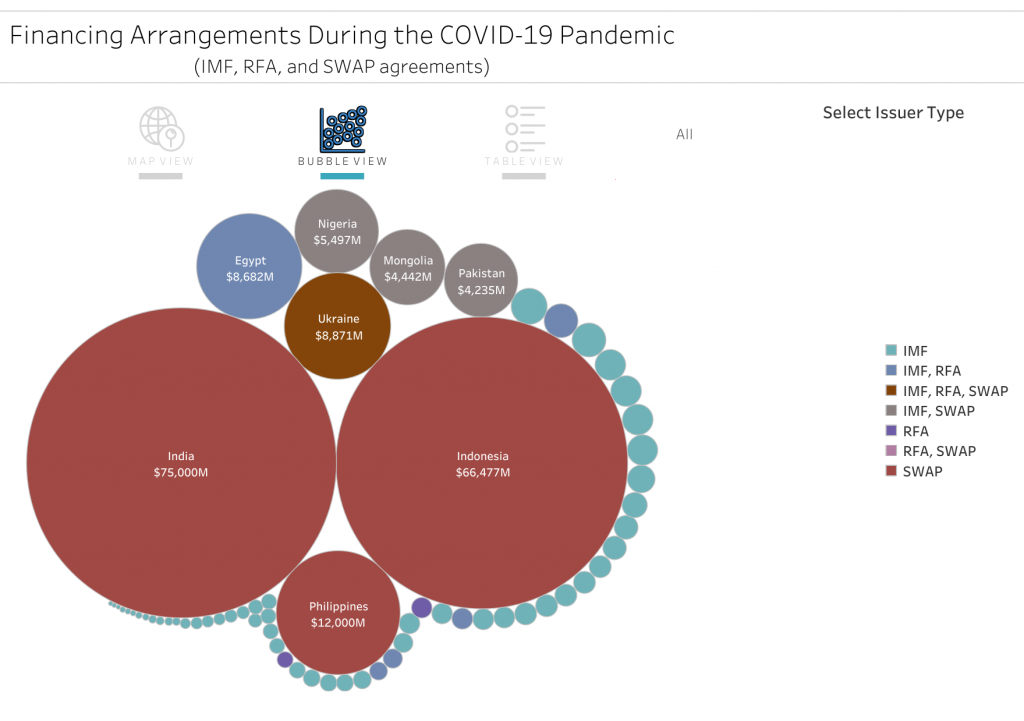Response and recovery: mobilizing financial resources for development in the time of COVID-19

The COVID-19 pandemic has exacerbated the economic, financial and debt vulnerabilities of low-income and middle-income developing countries, increasing the challenges they face to achieve the 2030 Agenda. This project (www.Mobilizingdevfinance.org) strengthens the diagnostic and policy design capacity of relevant authorities in selected low- and middle-income developing countries to respond successfully to the COVID-19 pandemic and ensure that the recovery is aligned with the achievement of the SDGs.
Through the project several toolkits are made available to help countries to achieve this objective, the first of which is the Global Financial Safety Net (GFSN) (www.gfsntracker.com). The tracker provides comprehensive information on short-term external liquidity provision at the global, regional and the bilateral level, i.e., International Monetary Fund (IMF) lending lines, Regional Financial Agreements (RFA), and central bank currency swaps for all UN Member States. It provides regularly updated information both on potential lending capacity and on actual utilization of liquidity sources, which together make up the global safety net. Country-specific information on approved loan amounts by RFAs and the IMF is constantly updated and shown in different interactive graphs and analytical categories. The GFSN tracker allows each Member State to know its relative position in terms of uncoordinated short-term liquidity provision. Such information can help mitigate the risk of mistakenly categorizing a solvency crisis as a liquidity crisis.
Additional toolkits being delivered through this project include the next generation Financial Conditions Indicator (FCI) to identify financial stress and an expanded Global Policy Model for 40 developing countries, and the Sustainable Development Finance Assessment (SDFA) focusing on the mobilisation of external and public financial resources for development without jeopardizing debt sustainability. This project will also help improve the design of macroeconomic policies to enable a successful response to and recovery from the COVID-19 pandemic, hence contributing to economic growth with decent work and reduced inequalities.
Read more about the Development Account’s COVID-19 response.